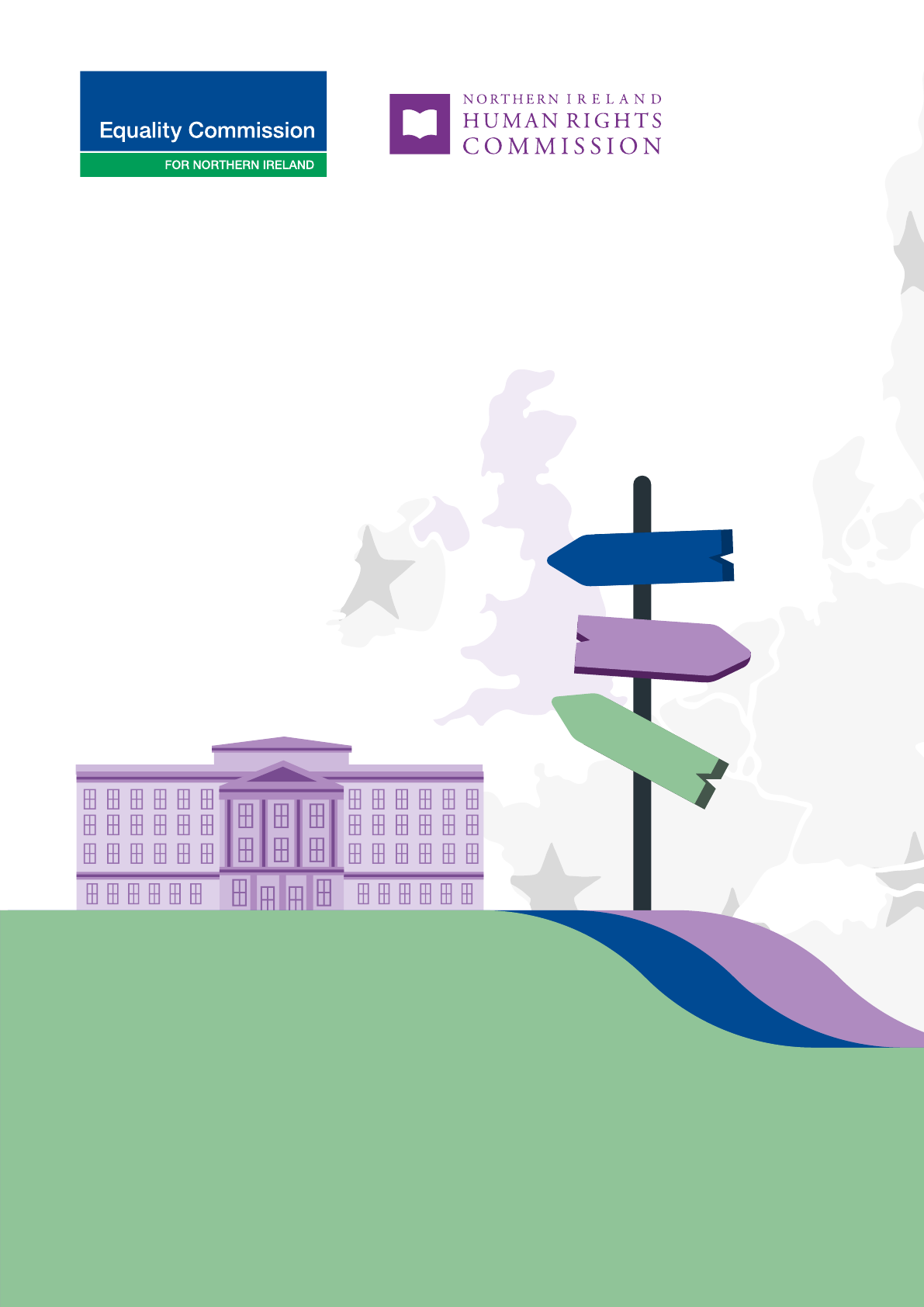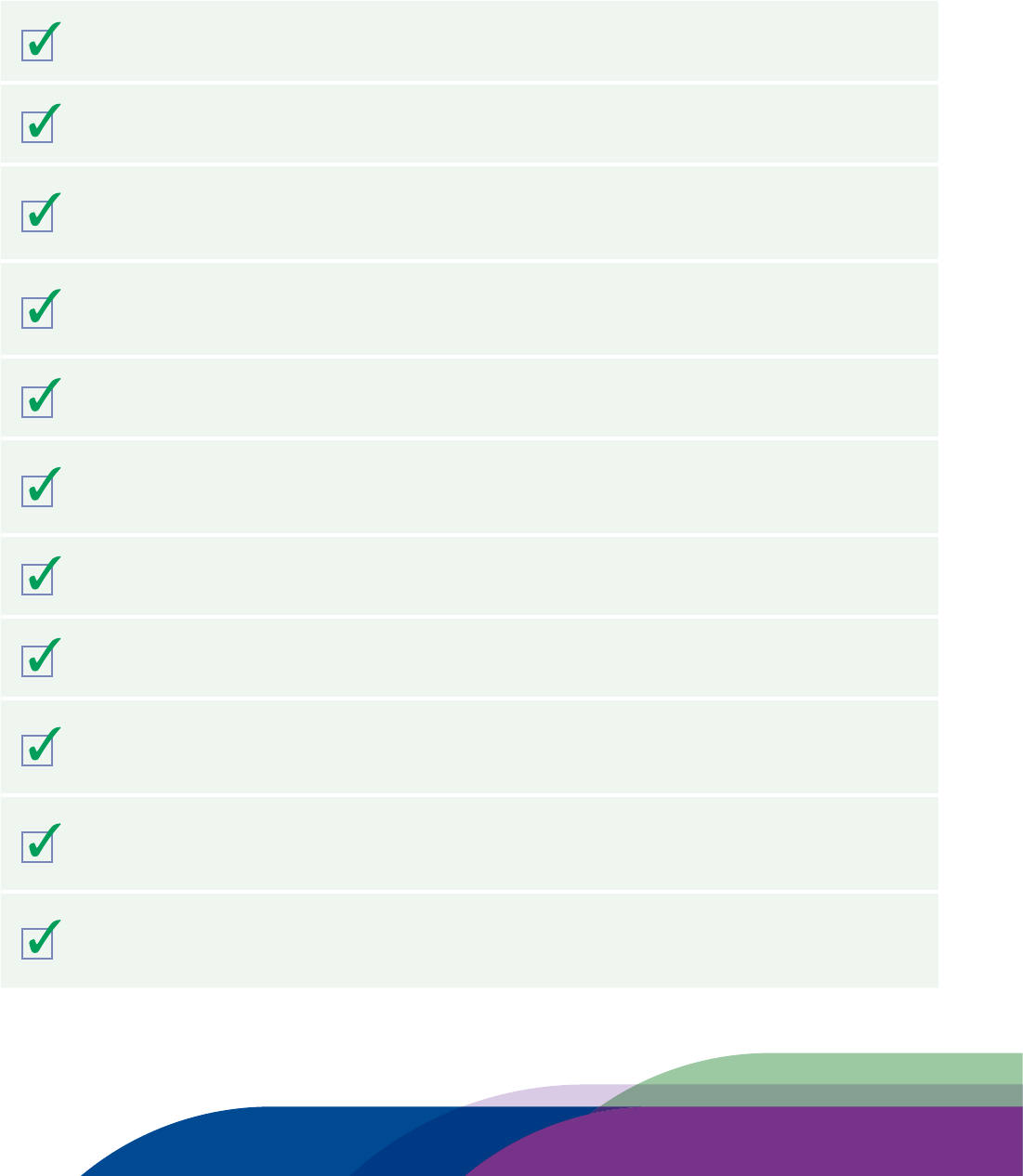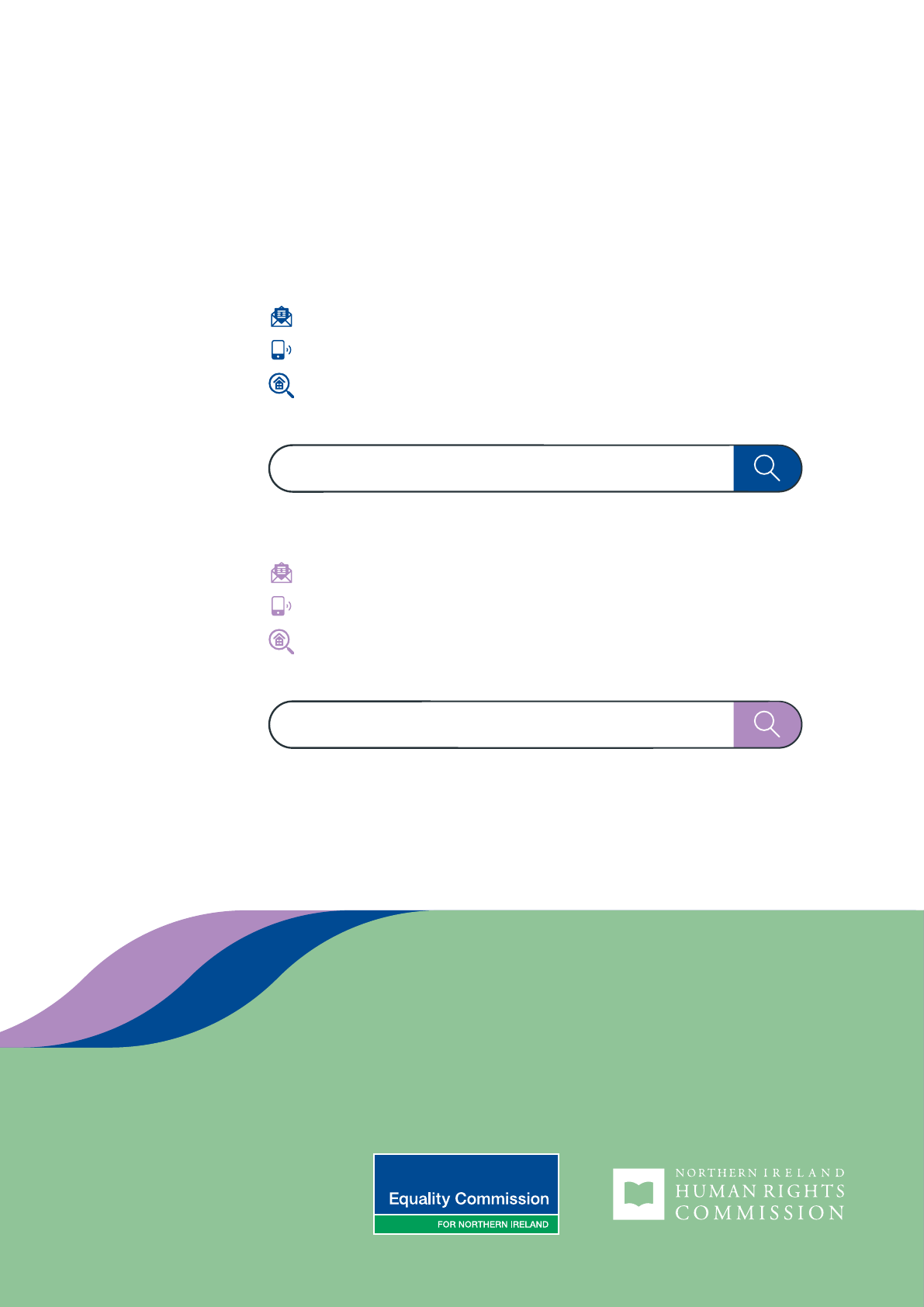
A Short
Guide
Equality and Human
Rights after Brexit:
The UK Government’s commitment under
the Windsor Framework
Article 2 (1) of the Windsor Framework
EQUALITY
HUMAN
RIGHTS


Introduction
Under the EU/UK Withdrawal
Agreement, the UK
Government has committed,
in Article 2 (1) of the Windsor
Framework, to ensuring that
certain equality and human
rights in Northern Ireland will
continue to be protected
after Brexit.
Set out below is further
information on that
commitment, the right of
individuals to challenge an
alleged breach of the UK
Government’s commitment
and how the Equality
Commission and the
Northern Ireland Human
Rights Commission can
assist individuals who wish to
make such a challenge.
3Equality and Human Rights after Brexit

EQUALITY
HUMAN
RIGHTS
4
The UK Government’s
commitment to
equality and human
rights after Brexit
The UK Government has
committed, in Article 2 of the
Windsor Framework, to ensuring
that the protections currently in
place in Northern Ireland
regarding the rights, safeguards,
and equality of opportunity
provisions, set out in the chapter
of the same name in the Belfast
(Good Friday) Agreement, are
not reduced as a result of Brexit.
The UK Government also
committed in the Windsor
Framework to ensuring that
certain equality laws in Northern
Ireland will keep pace with any
future changes to the EU equality
laws which are set out in Annex 1
to the Windsor Framework.
This commitment is a recognition
of the importance and centrality
of rights and equality protections
in the Belfast (Good Friday)
Agreement and of the fact that
this Agreement has underpinned
the peace process here.
This commitment applies to
Northern Ireland. Everyone who is
protected by Northern Ireland law
is covered by this commitment
irrespective of whether the law
has been passed by the Northern
Ireland Assembly or the UK
Parliament.
A Short Guide

The rights covered by the commitment
The commitment in Article 2 of the Windsor Framework applies to
the rights, safeguards, and equality of opportunity provisions set
out in the chapter of the same name in the Belfast (Good Friday)
Agreement, which include:
The right of free political thought
The right to freedom and expression of religion
The right to pursue democratically national and political
aspirations
The right to seek constitutional change by peaceful and
legitimate means
The right to freely chose one’s place of residence
The right to equal opportunity in all social and economic
activity regardless of class, creed, disability, gender or ethnicity
The right to freedom from sectarian harassment
The right of women to full and equal political participation
The right of victims to remember as well to contribute to a
changed society
Respect, understanding and tolerance in relation to linguistic
diversity
The need to ensure that symbols and emblems are used in a
manner which promotes mutual respect rather than division
5

So
me of these rights, as set
out on the previous page,
are underpinned by EU anti-
discrimination laws which protect
against discrimination on the
grounds of: gender; racial or ethnic
origin; religion or belief; disability;
age; sexual orientation; and which
promote equal treatment.
These EU laws cover areas such
as employment, access to goods
and services, and social security,
and are set out in Annex 1 to
the Windsor Framework, and are
listed in Appendix 1 of this
booklet.
There are also other EU laws
which are relevant to the
protection of these rights. These
include EU laws such as the
Parental Leave Directive, Victims’
Directive and Pregnant Workers’
Directive, as well as specifi
c
measures aimed at protecting the
rights of disabled people.
This commitment is binding on the
UK Government and Parliament,
and the Northern Ireland
Executive and the Assembly, as a
matter of international law.
All the provisions in the
Withdrawal Agreement, including
the UK Government’s
commitment under Article 2 of
the Windsor Framework, are now
contained in UK law.
6 A Short Guide

The role of the Equality
Commission and the
Northern Ireland Human
Rights Commission
To ensure that the UK Government
meets its commitment under
Article 2 of the Windsor
Framework, it created a
‘dedicated mechanism’
comprising of the Equality
Commission of Northern Ireland
and the Northern Ireland
Human Rights Commission.
The Commissions have been given
additional powers and
responsibilities to ensure that the
UK Government’s commitment
is met.
They are responsible for providing
advice to government and
monitoring, supervising, enforcing
and reporting on the ongoing
implementation of this
commitment.
Specifically, the Commissions’ new
powers and duties include:
Monitoring how the
commitment is implemented;
Reporting on its
implementation to the
Secretary of State for
Northern Ireland and The
Executive Oce;
Advising the Secretary of
State and the Northern Ireland
Executive of legislative and
other measures that must
be taken to implement the
commitment;
Advising the Northern Ireland
Assembly (or a committee
of the Assembly) whether a
Bill is compatible with the
commitment;
Promoting understanding and
awareness of how important
the commitment is;
Bringing or intervening in
legal proceedings in respect
of an alleged breach (or
potential future breach of the
commitment); and
Assisting persons in relevant
legal proceedings.
7

The Commissions can carry out
their powers and duties either
jointly or separately.
The Commissions will also work
with the Irish Human Rights and
Equality Commission (IHREC)
to provide oversight of, and
reporting on, rights and equalities
issues falling within the scope
of the commitment that have an
island of Ireland dimension.
Further, the Equality Commission,
the NI Human Rights Commission,
and the Joint Committee of
NI Human Rights Commission
and IHREC can directly raise
matters of relevance to how
the commitment is being
implemented with the Specialised
Committee on the Windsor
Framework.
Challenging a breach of
the Article 2 commitment
Individuals have the right to bring
legal actions before the domestic
courts if they consider that there
has been a breach, or a potential
future breach, of the UK
Government’s commitment under
Article 2 of the Windsor
Framework.
For example, this means that
if individuals consider that the
Northern Ireland Assembly, or the
Northern Ireland Executive, has
acted in a way that is incompatible
with the UK Government’s
commitment, they can challenge
those actions in domestic courts,
by taking a form of legal action
known as a ‘judicial review’.
Only the courts can decide
whether a breach of Article 2 of
the Windsor Framework has
occurred.
In order to show that there
has been a breach of the UK
Government’s commitment, there
must be evidence that:
the right, safeguard or
equality of opportunity
protection is covered by
the chapter of the same
name in the Belfast (Good
Friday) Agreement;
it was protected under
Northern Ireland law
on or before the end
of the Brexit transition
period, namely
31 December 2020;
the reduction in
rights occurred as
a result of Brexit.
8 A Short Guide

A failure by the UK Government
to ensure that Northern Ireland
equality laws keep pace with
any future changes that the
EU makes to update or replace
the EU equality laws set out
in Annex 1 to the Windsor
Framework, would also be a
breach of its commitments under
the Windsor Framework.
Enforcement powers
of the Commissions
Both Commissions have
additional powers to enforce the
UK Government’s commitment
under Article 2 of the Windsor
Framework and to ensure the
rights and equality protections
are upheld.
Both Commissions can:
Provide advice and assistance
to individuals
1
, including,
where appropriate, provide
support to individuals to bring
legal proceedings, where
they believe that the UK
Government’s commitment
has been breached;
Bring legal challenges or
intervene in legal cases, where
there is an alleged breach, or
potential future breach, of the
UK Government’s commitment,
where appropriate.
The Commissions can exercise
their enforcement powers and
duties jointly or separately. For
example, they have the power to
bring legal proceedings together
or in their own name.
9Equality and Human Rights aft
er Brexit
[1] The relevant legislation (Section 78 D (1) & (2) of the Northern Ireland Act 1998) refers to the power
of Commissions to assist ‘persons’ in legal proceedings.

Time limits for making
a complaint
There are strict
time limits for
lodging judicial
review proceedings
with a court.
A judicial review case for an
alleged breach of Article 2 must
be brought within 3 months
of the decision or action being
complained of taking place.
Please note that contacting
the Commissions or making an
application for assistance to
the Commissions for advice or
assistance does not constitute
issuing legal proceedings.
10 A Short Guide
Further information
For further information and
guidance on the UK Government’s
commitment under Article 2 of of
the Windsor Framework, or in
relation to contacting the
Commissions as regards an
alleged breach of the UK
Government’s commitment under
Article 2 of the Windsor
Framework, please see below:
Equality Commission for NI
www.equalityni.org/brexit
NI Human Rights Commission
www.nihrc.org/our-work/brexit
For additional information: NIO
(2020), Explainer: UK
Government commitment to no
diminution of rights, safeguards
and equality of opportunity in
Northern Ireland
https://www.gov.uk/
government/publications/the-
windsor-framework

Appendix 1: Equality Directives listed in Annex 1
to the Windsor Framework
The six EU Equality Directives listed in Annex 1 to the Windsor
Framework are:
Gender Goods and Services Directive (Gender): Directive 2004/113/EC of
13 December 2004 implementing the principle of equal treatment
between men and women in the a
ccess to and supply of goods and
services;
Recast Directive (Gender): Directive 2006/54/EC of the European
Parliament and of the Council of 5 July 2006 on the implementation of
the principle of equal opportunities and equal treatment of men and
women in matters of employment and occupation (recast);
Race Equality Directive (Race): Directive 2000/43/EC of 29 June
2000 implementing the principle of equal treatment between persons
irrespective of racial or ethnic origin;
Framework Directive (Religion and belief; age; sexual orientation; and
disability): Directive 2000/78/EC of 27 November 2000 establishing a
general framework for equal treatment in employment and occupation;
Equal Treatment Directive: Self-employment (Gender): Directive
2010/41/EU of the European Parliament and of the Council of 7 July
2010 on the application of the principle of equal treatment between
men and women engaged in an activity in a self-employed capacity and
repealing Council Directive 86/613/EEC;
Equal Treatment Directive: Social security (Gender): Directive
79/7/EEC of 19 December 1978 on the progressive implementation of
the principle of equal treatment for men and women in matters of
social security.
11

EQUALITY
HUMAN
RIGHTS
A Short
Guide
Equality and Human
Rights after Brexit:
The UK Government’s commitment under
the Ireland/Northern Ireland Protocol
Article 2(1) of the Protocol
Further information
For further information and guidance, please contact:
Equality Commission for NI
DMU@equalityni.org
028 9050 0600
Equality House,
7-9 Shaftesbury Square, Belfast, BT2 7DP
www.equalityni.org/brexit
NI Human Rights Commission
info@nihrc.org
028 9024 3987
4th Floor Alfred House,
19-21 Alfred Street, Belfast, BT2 8ED
www.nihrc.org/our-work/brexit
April 2021
